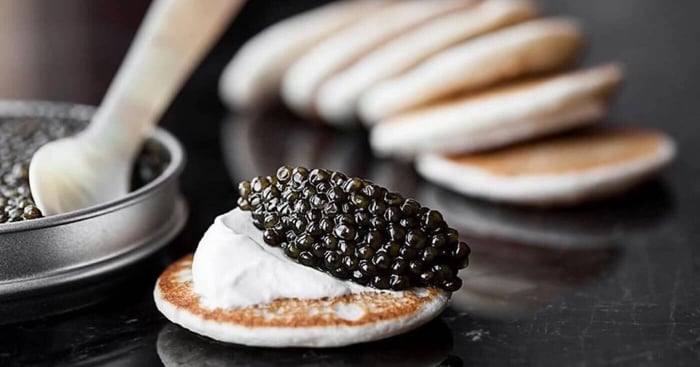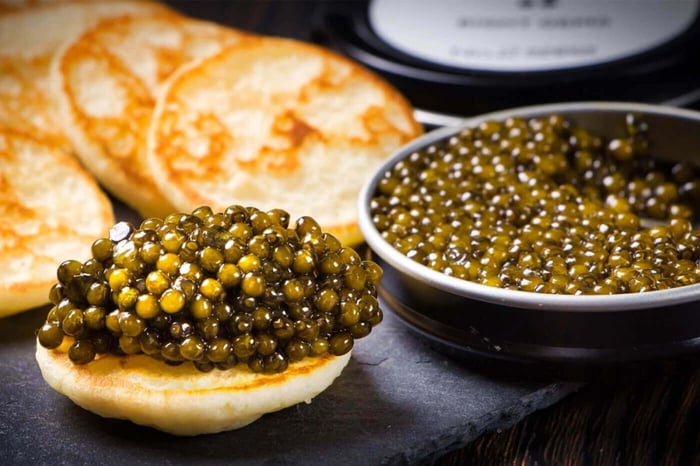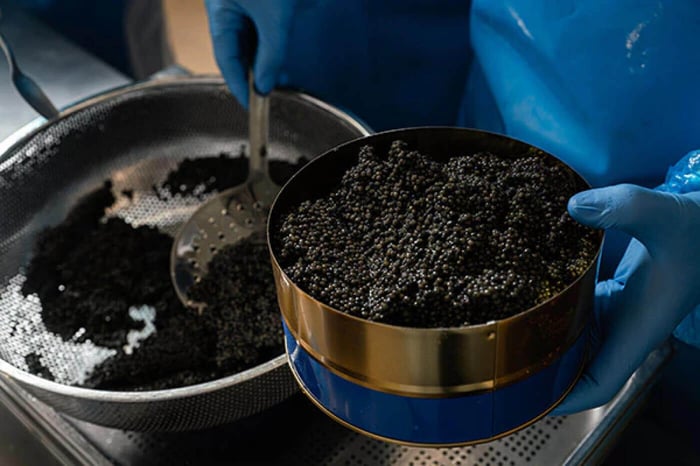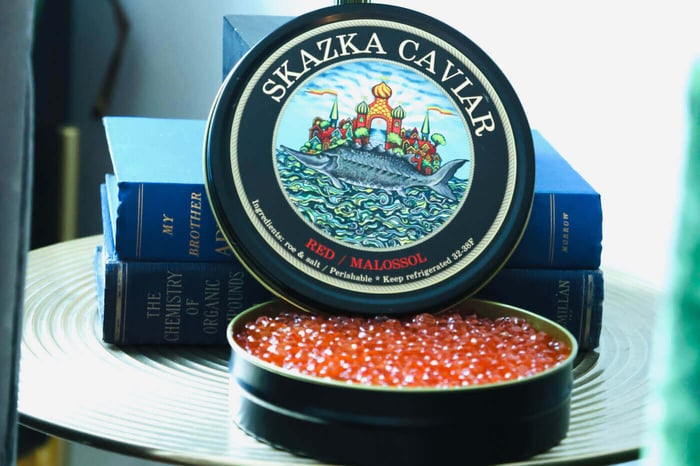 Caviar, the luxurious delicacy consisting of fish eggs, has long been associated with wealth, indulgence, and exclusivity. Beyond its status as a symbol of affluence, caviar has also been touted as a potent aphrodisiac, purportedly capable of enhancing sexual desire and performance. This belief has been perpetuated through centuries, often linking caviar to romantic or intimate encounters. But how much truth is there to the claim that caviar can act as a love potion? In this article, we’ll explore the origins of this belief, the scientific evidence behind it, and whether caviar truly deserves its reputation as an aphrodisiac.
Caviar, the luxurious delicacy consisting of fish eggs, has long been associated with wealth, indulgence, and exclusivity. Beyond its status as a symbol of affluence, caviar has also been touted as a potent aphrodisiac, purportedly capable of enhancing sexual desire and performance. This belief has been perpetuated through centuries, often linking caviar to romantic or intimate encounters. But how much truth is there to the claim that caviar can act as a love potion? In this article, we’ll explore the origins of this belief, the scientific evidence behind it, and whether caviar truly deserves its reputation as an aphrodisiac.
The Origins of Caviar's Aphrodisiac Reputation
The belief in caviar as an aphrodisiac dates back centuries, deeply rooted in the history and traditions of various cultures. In ancient Persia, caviar was consumed by the nobility and was believed to enhance strength and stamina, qualities that were also associated with virility. During the 19th and 20th centuries, European aristocrats often included caviar in lavish feasts that celebrated love and romance, further cementing its status as a food that could ignite passion. This historical context played a significant role in shaping the modern perception of caviar as an aphrodisiac, even as scientific understanding of nutrition and physiology evolved.
Read: The Evolution of Caviar Packaging: A Historical Perspective
Nutritional Composition of Caviar and Its Potential Effects
Caviar is a rich source of nutrients, including omega-3 fatty acids, high-quality protein, and vitamins such as A, D, and B12. These components are known to promote overall health, including cardiovascular function, which is essential for sexual health. Omega-3 fatty acids, in particular, are linked to improved blood circulation, which can enhance sexual performance. However, while these nutrients contribute to general well-being and may support sexual health indirectly, there is no direct evidence that they specifically trigger an increase in sexual desire or arousal. Thus, while caviar is undoubtedly nutritious, its role as an aphrodisiac remains largely speculative.
Scientific Studies on Caviar as an Aphrodisiac
Despite its long-standing reputation, there is limited scientific research directly investigating caviar's aphrodisiac properties. Most studies on aphrodisiacs focus on more commonly researched substances like oysters, chocolate, or certain herbs. However, some of the nutrients found in caviar, such as zinc and arginine, are known to influence libido and reproductive health. Zinc, for instance, plays a crucial role in testosterone production, which is vital for sexual desire in both men and women. Yet, the specific impact of caviar consumption on libido has not been conclusively proven through clinical studies, leaving much of the evidence anecdotal or circumstantial.
Read: Exploring the World of Caviar Accessories
Psychological Factors and the Placebo Effect
The belief that caviar is an aphrodisiac might also be fueled by psychological factors and the placebo effect. The luxury and exclusivity associated with caviar can create a sense of excitement and anticipation, particularly in romantic settings. This heightened emotional state can, in turn, influence sexual desire and performance, leading individuals to attribute their experiences to the food itself rather than the context or their own expectations. The placebo effect, where the belief in the efficacy of a substance leads to perceived improvements, is well-documented in many areas of health, including sexual function. Therefore, the perception of caviar as an aphrodisiac may be more about the mind than the body.

Comparing Caviar to Other Alleged Aphrodisiacs
When compared to other foods commonly believed to have aphrodisiac properties, such as oysters, chocolate, and certain spices, caviar does not have a strong foundation of scientific support. Oysters, for example, are known to be high in zinc, which has a more direct link to libido enhancement, while chocolate contains compounds like phenylethylamine that are thought to influence mood and arousal. While caviar shares some nutritional similarities with these foods, particularly in its zinc content, it lacks the same level of scientific backing. This comparison highlights the fact that caviar's reputation as an aphrodisiac is more a product of cultural belief and luxury branding than scientific validation.
Modern Perceptions and Marketing of Caviar
In contemporary culture, the idea of caviar as an aphrodisiac continues to be perpetuated, largely driven by marketing and the food’s association with opulence. High-end restaurants and gourmet food brands often emphasize caviar’s supposed aphrodisiac qualities, using it as a selling point to appeal to consumers seeking both indulgence and intimacy. However, modern consumers are increasingly skeptical of such claims, particularly as awareness of nutrition science grows. While caviar remains a popular choice for special occasions and romantic dinners, its reputation as a love-enhancing food is more of a marketing tool than a scientifically supported fact.
Conclusion
While caviar undoubtedly holds a place of honor as a luxurious and nutritious delicacy, its status as an aphrodisiac appears to be more myth than reality. The historical and cultural factors that have contributed to this belief, combined with the psychological impact of consuming such an exclusive food, have helped to sustain its reputation over the years. However, the scientific evidence supporting caviar's ability to enhance sexual desire is minimal, and its effects are likely more related to the context in which it is consumed than to any inherent properties of the food itself. Therefore, while caviar may add a touch of elegance to a romantic evening, those seeking a true aphrodisiac might want to look elsewhere.
About the Author
 Igor Fishbeyn - Caviar Purveyor
Igor Fishbeyn - Caviar Purveyor
Igor Fishbeyn is purveyor of fine sturgeon caviar and creator of the Skazka Caviar brand. He is an expert with decades of experience specializing in importing, wholesaling, and retailing the finest quality caviar in the world. Igor frequently writes about caviar news and various topics about the caviar industry. He lives in San Francisco with his wife and daughter.
Shop Skazka Caviar
Browse Our Exclusive Caviar Collection
“River Beluga” Kaluga Sturgeon Caviar
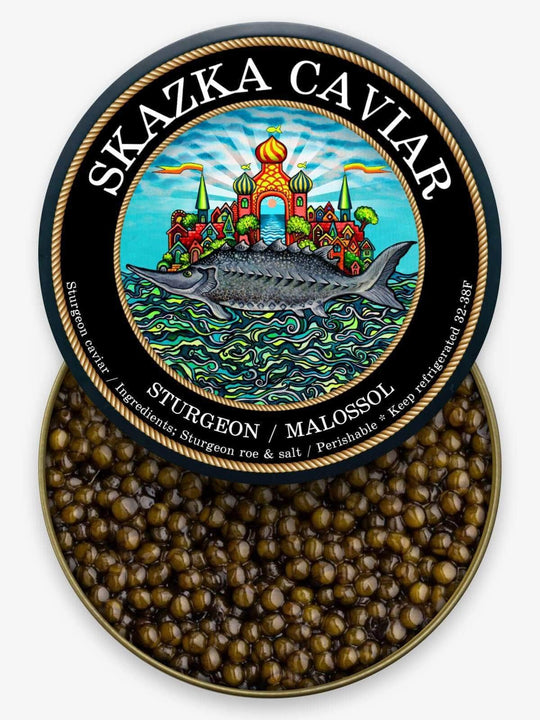
$295
$395
This large, robust caviar is a favorite of connoisseurs. Its firmness provides a satisfying texture that will keep you coming back for seconds and even thirds. Its luxurious chocolate brown color is perfectly evocative of its rich taste. Hints of… read more
“Oprah’s Favorite” Russian Osetra Caviar
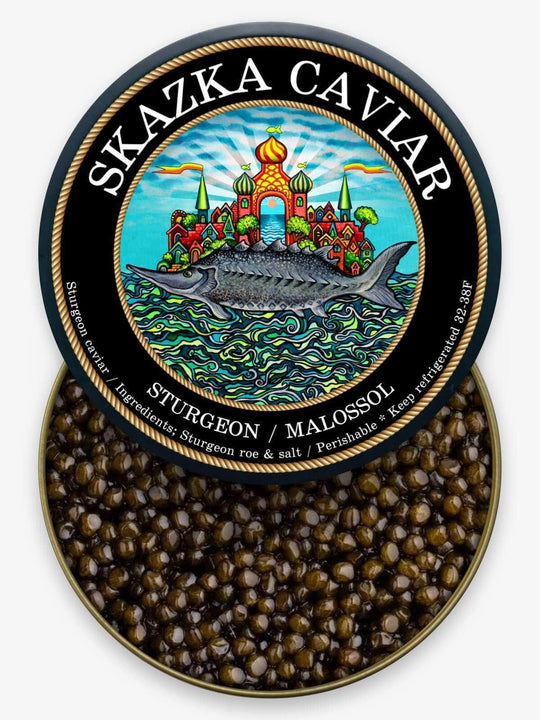
$295
$335
This medium-sized caviar is sure to be the star of any party or function you may throw. Its deep chocolate brown color is indicative of its rich and buttery flavor. Amber Osetra caviar has one of the cleanest tastes of any… read more
"Russian Czar" Beluga Sturgeon Caviar
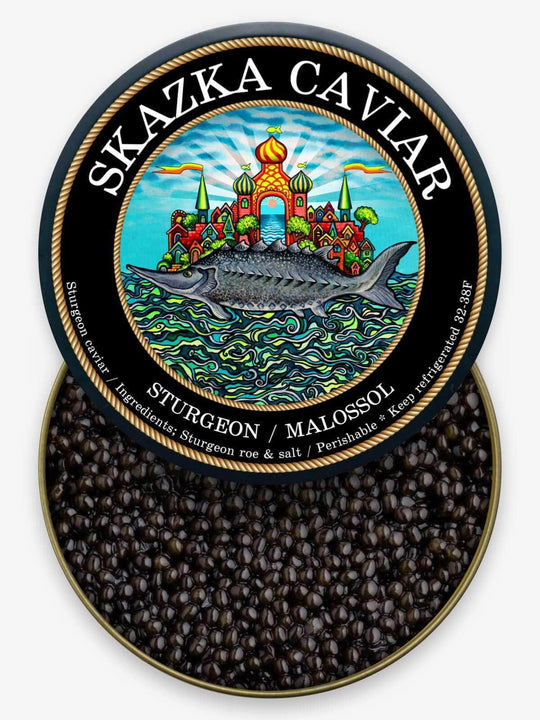
$495
$599
With an incomparable richness, “Russian Czar” Beluga Sturgeon Caviar is a knockout when it comes to fine caviar. Traditionally harvested in Russia, this caviar holds a tradition of greatness throughout history. With buttery notes that linger on the taste buds,… read more
“Tsar Reserve” Golden Osetra Caviar
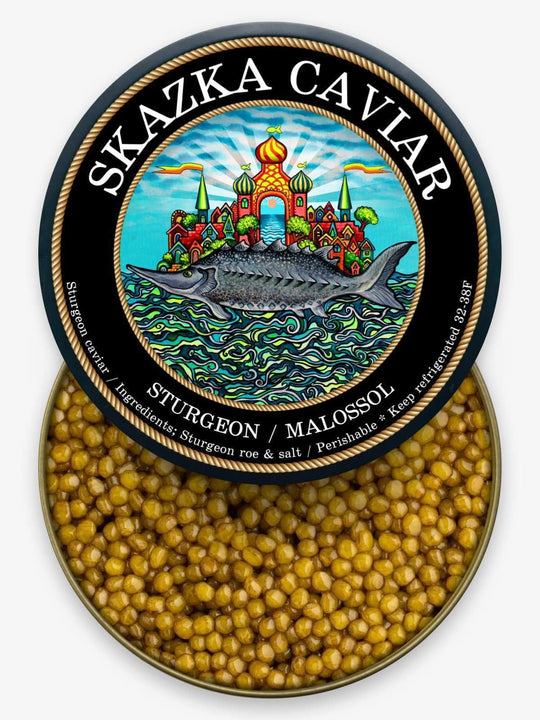
$395
Anyone with a taste for fine caviar will love “Royal Reserve” Golden Osetra Caviar. Its beautiful deep amber color is the first sign you’ll have that you’re in for something special, and once it hits your tongue you’ll know just… read more
Shop Caviar By Type
Shop Black Caviar | Shop Red Caviar | Shop Caviar Accessories
Shop Beluga Caviar | Shop Kaluga Caviar | Shop White Sturgeon Caviar
Shop Osetra Caviar | Shop Salmon Roe | Shop Albino Sturgeon Caviar


